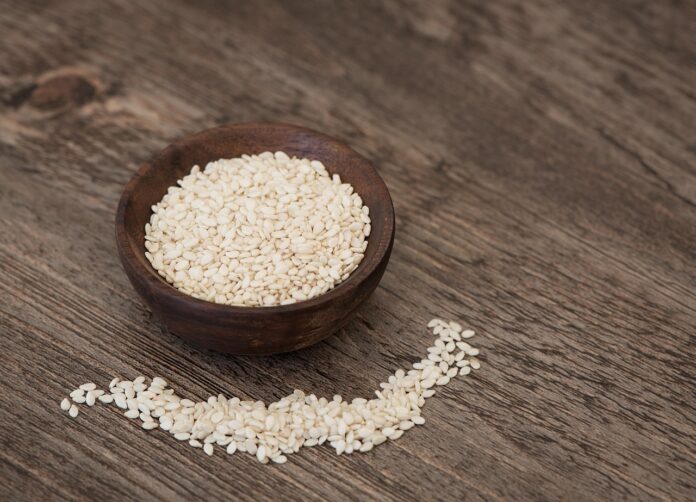Sesame seeds are tiny, oil-rich seeds that come from the sesame plant. They are often used in cooking and baking, adding a nutty flavor and crunchy texture to foods. These seeds are not only tasty but also packed with nutrients, including healthy fats, protein, vitamins, and minerals.
Interesting Facts about Sesame Seeds:
- Sesame seeds are one of the oldest oilseed crops known, domesticated over 3,000 years ago.
- They come in various colors, including white, black, yellow, and red.
- The sesame plant is native to Africa and parts of Asia.
- They are an excellent source of protein, making them a good addition to vegetarian and vegan diets.
- Sesame seeds are high in fiber, which aids in digestion.
- They contain essential minerals such as calcium, magnesium, and iron.
- Sesame seeds are a good source of B vitamins, including B1 (thiamine) and B6 (pyridoxine).
- The oil extracted from sesame seeds is known as sesame oil or gingelly oil.
- Tahini, a paste made from ground sesame seeds, is a key ingredient in hummus.
- Sesame seeds are often sprinkled on bread, buns, and bagels for added texture and flavor.
- Black sesame seeds are believed to have stronger health benefits than white ones.
- In Japan, ground sesame seeds are mixed with salt to make gomasio, a popular seasoning.
- They are often used in Indian sweets and snacks, such as tilgul and chikki.
- Sesame seeds can be used to make a nutritious milk alternative, sesame milk.
- They are gluten-free, making them a safe option for those with celiac disease or gluten intolerance.
- In Korea, sesame leaves are often used as a wrapping for foods in a similar way to grape leaves.
- The phrase “Open Sesame” from the story of Ali Baba and the Forty Thieves refers to the way sesame seed pods burst open when they ripen.
